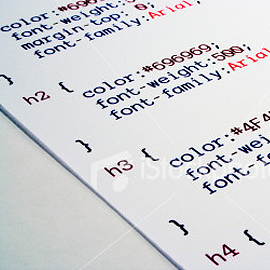

What does a web developer do?
Web developers – also known as web programmers – make websites ‘do things’. In other words, they develop a site’s ‘functionality’ and ‘interactivity’. So if you use the web to do things like book a flight, comment on forums, view a bank balance, report a fault… and countless other tasks, then a web developer will have been involved in making sure it all works smoothly.
Is it a career with prospects? Well when you consider the rapid rate at which the internet has grown, and is continuing to grow, and the fact that more and more sites want sophisticated functionality so users can carry out tasks quickly and efficiently, you probably have your answer.
Qualities needed
So how do you know if web developing is for you? What skills and qualities are needed to build a successful career as a web developer? A good starting point is having a strong interest in computers, the internet and the web – and even if you haven’t yet learned to program, in the technologies that make the web tick. You’ll also need a strong measure of patience, to be methodical, and have an inquisitive mind. Although not essential, if you have an eye for what looks good on the web, that’s sure to stand you in good stead too.
 Start at the start
Start at the start
When it comes to skills, a great place to start is with learning HTML and CSS – the basic building blocks of pages on the web. Although WYSIWYG (What You See Is What You Get) programmes like Adobe Dreamweaver make it possible for some designers to bypass the need to learn these core skills, most web developers would be expected to be able to code using only a simple text editor.
Then there are other languages that can add functionality to websites: an understanding of PHP, and databases like MySQL, is particularly useful when working with ‘dynamic websites’, such as the increasing numbers powered by a content management system (CMS) to store and call up content from a database into page templates when required.
JavaScript is another language well worth mastering. Not only is it useful for adding functionality to web pages, but it can also be used in applications beyond the web. Ajax can also complement your HTML and CSS skills, and there are various other programming languages, from Perl to ASP, that can be useful additions to your web developer’s toolkit.
Developing your understanding of web standards, as outlined by the World Wide Web Consortium (W3C), and how different browsers may render pages differently, is another element that will help you troubleshoot websites more effectively.
INTERESTING VIDEO












